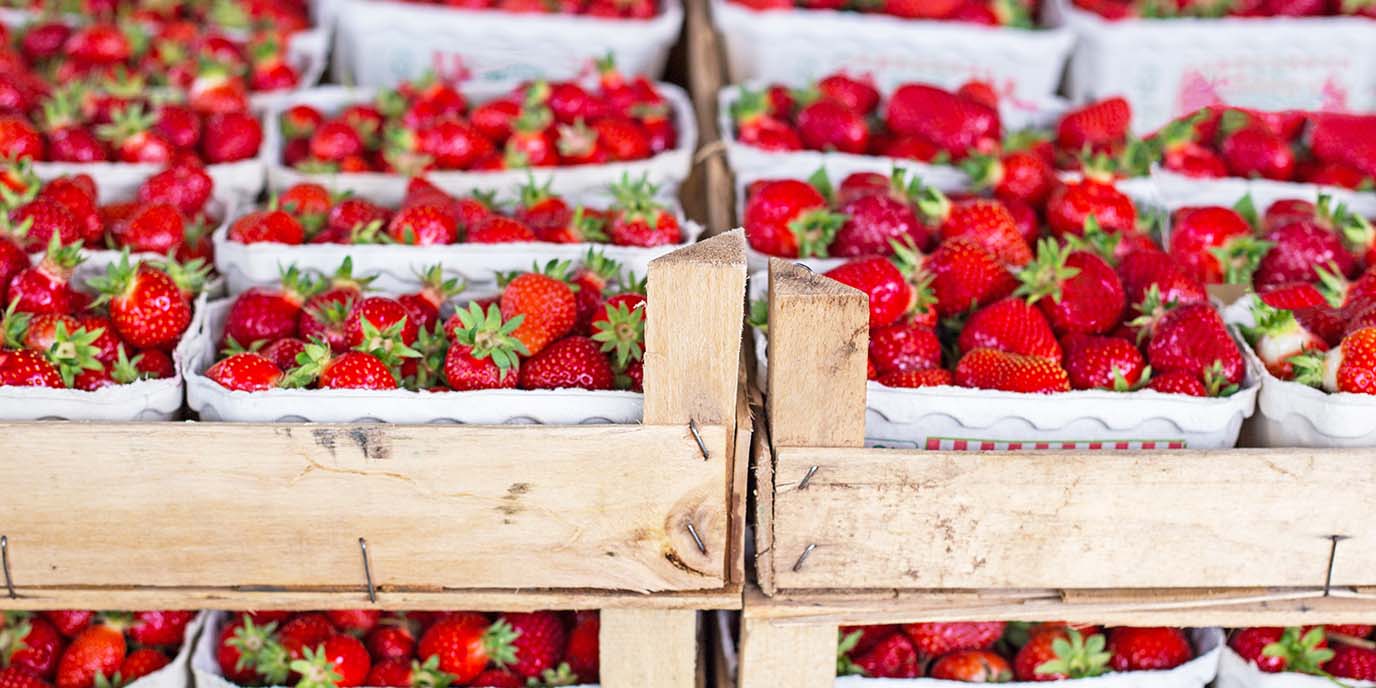Most large supermarket chains, including Albert Heijn, have one or more national distribution centres (DCs) for fresh food products at their disposal, including dairy products, meat, fish, vegetables and fruit. Every day, these fresh distribution centres supply the right amount of items to the regional distribution centres (RDCs), where they are combined with the groceries there and transported to the shops. This is a transhipment process called crossdocking, which requires short lead times. The sooner the fresh food products are on the shelves, the higher the quality consumers can enjoy and the lower the possibility of losses due to waste and rot.
COPE research has shown that the crossdock process can be executed more efficiently and rapidly. By clustering the fresh food products per individual shop in the national fresh distribution centres, sorting them there and loading them in the right order based on the outgoing journeys from the RDC, the average time during which a roll container has to be kept in the RDCs can be shortened by twenty minutes. Besides that, this research showed even more possibilities to improve fresh produce logistics and make them more sustainable, including by way of involving the suppliers of the fresh food products in the optimisation process. This is sufficient reason for conducting more extensive and thorough research.
Internal versus external logistics
The research project Sustainable Logistics in Fresh Food (SLIFF) has been set up for the purpose of making fresh produce logistics more sustainable by making better use of the available logistic capacity while lead times continue to decrease. In addition to the University of Groningen, Erasmus University Rotterdam is taking part in this research, which started early 2015 and has a four-year duration. The Dutch Organisation for Scientific Research NWO is financing it for a significant part in the framework of its research programme Sustainable Logistics.
This research project focuses on two challenges:
1. Distribution network optimisation versus internal logistics optimisation.
This is a continuation of the earlier research study which focused on the question what impact the way in which the national fresh distribution centres delivered products had on efficiency and lead times in the regional centres. Research topics include the best possible sequence of lorry-loading in the national fresh distribution centres and allocating lorries to the RDC docks. Besides that, research will be conducted into how crossdock and order-pick processes within the RDCs can be harmonised for the purpose of clustering both flows.
2. Stock optimisation versus transport optimisation.
This challenge concerns the national fresh distribution centres, which are supplied by the suppliers of fresh food products. The basic proposition is vendor managed inventory, which means that the suppliers themselves are responsible for a sufficient stock level in the fresh distribution centres. By clustering their shipments, suppliers will be able to increase their delivery frequency and keep stock levels in the fresh distribution centres low. In addition to sharing transport capacity, these suppliers could make a next step by sharing storage capacity, which will improve the use of fresh distribution centres and the efficiency of their processes.


